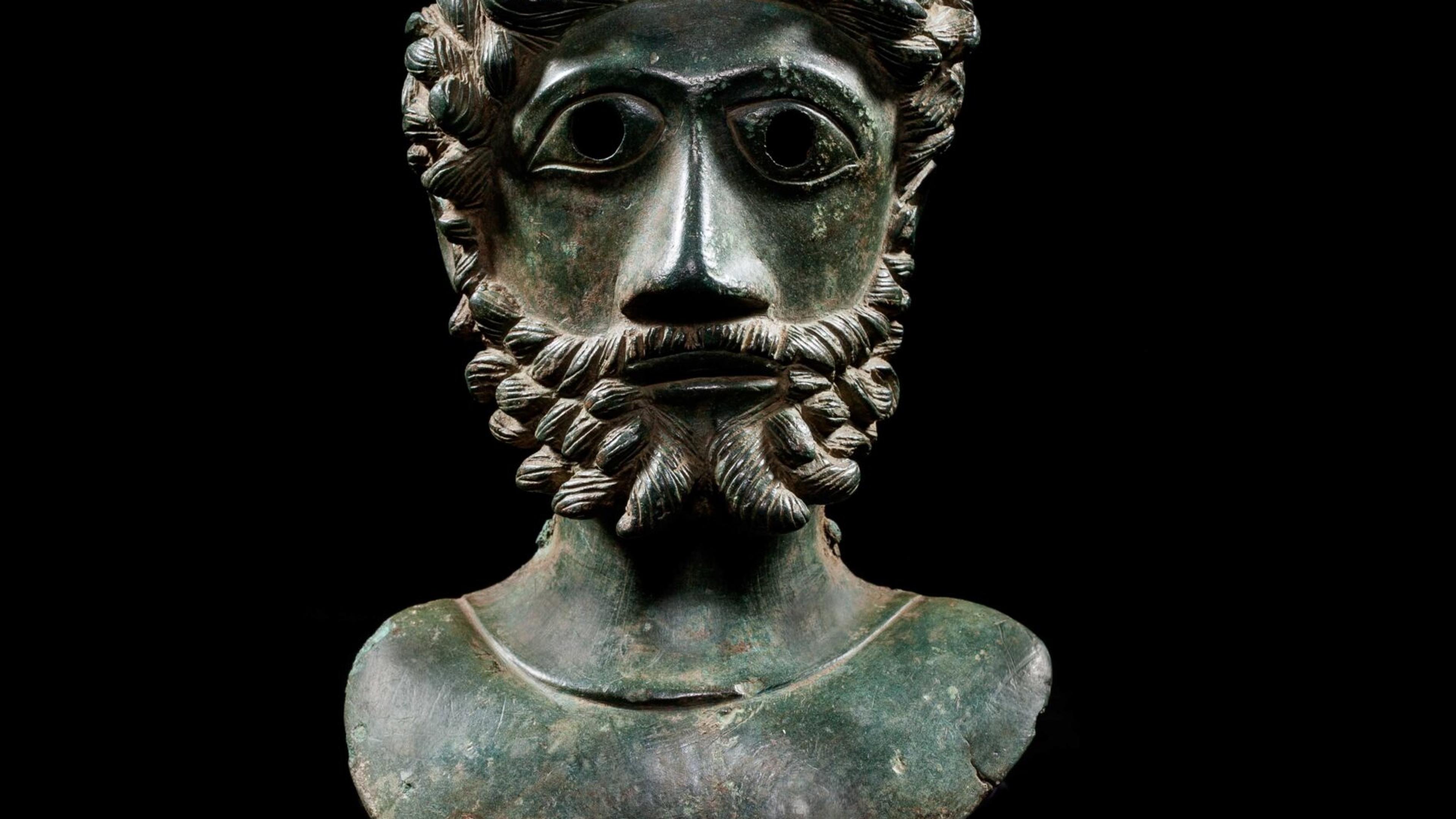To become more forgiving, we are often told to be more empathic. Empathy is a powerful social adhesive, one that most people believe helps us mediate forgiveness as it increases the likelihood of feeling together with someone who has hurt us. But there are serious problems with empathy, as the psychologist Paul Bloom has argued.
He points out that empathy is inherently biased and we shouldn’t rely on it as a moral guide. ‘Empathy’s design failings have to do with the fact that it acts like a spotlight,’ he said in a 2017 interview. ‘It zooms you in. But spotlights only illuminate where you point them at, and for that reason empathy is biased.’ Feelings of empathy arise unequally across situations, and people tend to empathise more with in-group members. In negative settings, empathy can even lead to emotional distress and burnout.
Fortunately, empathy is not the most effective way to foster kindness and lenience. The Stoic philosophy of the Roman emperor Marcus Aurelius offers a compelling alternative, one that bypasses the flimsy nature of empathy and focuses on finding equanimity instead:
Someone despises me. That’s their problem. Mine: not to do or say anything despicable. Someone hates me. Their problem. Mine: to be patient and cheerful with everyone, including them.
At the imperial court, Marcus Aurelius witnessed the ancient world’s most conniving social environment. It was often challenging to maintain a moral high ground, so he frequently contemplated the theme of forgiveness, which he wrote about in his Meditations. Adopting a Stoic framework, he focused on taking control of his own emotions and achieving tranquillity independent of the social context:
It’s not what they do that bothers us. That’s a problem for their minds, not ours. It’s our own misperceptions. Discard them. Be willing to give up thinking of this as a catastrophe … and your anger is gone.
Implementing these principles made Marcus Aurelius a righteous ruler. And today his ideas offer a pragmatic path to make kindness and forgiveness fundamental principles in one’s life. Taking responsibility for our emotions – thereby constructing a resilient mindset that is unfazed by others’ provocations – is a more practical way of building character than depending on empathy. By focusing on our thoughts and actions instead of those of the perpetrator, we magnify our accountability to ourselves: our ego and its associated sense of entitlement, indignation and victimhood diminish. As neuroscience and psychotherapy suggest, changing our mental framework along the lines Marcus Aurelius describes can, in turn, ‘rewire’ our emotional brain, leading to a more patient temperament that is conducive to kindness.
To explore the psychological act of forgiveness, we must first look at how anger is wired in the brain. Biologically, anger is a fight-or-flight stress response. Our amygdala detects or predicts a threat in the environment, and floods the brain with a flurry of stress hormones that increase heart rate, blood pressure and respiration, riling us up to fight.
But crucially, the emotional reactivity of the amygdala – which makes us lose our heads in anger, stress or fear – can be consciously regulated by our prefrontal cortex. This brain area – involved in emotional regulation, behavioural control and complex decision-making – is always assessing what the amygdala is trying to convey to make sense of our situation. In response, the cortex can either inhibit or amplify this more visceral and emotional signal.
Let’s say you are at a concert, and someone steps on your shoe. You turn around ready to confront them, but you notice it was just a kid. So you refrain from acting out and instead let it go, forgiving him. Here, your cortex consciously appraises the emotional signal of the amygdala and inhibits it.
However, if you turn around and see it was the same large man who had already stepped on you twice before, you might begin shouting at the disrespectful idiot, not only failing to inhibit the anger response from the amygdala but amplifying it. Your appraisal of the context, in this case, makes it all the more infuriating. And to add further fuel to the fire, if you can’t stop thinking about the incident after it has happened, you further amplify the rage in your head, consciously keeping yourself riled up.
So while we often blame the fast-acting, emotional amygdala for our anger, it is the cortex that regulates what we allow ourselves to feel and how we manifest that feeling. This dynamic interaction between the amygdala and the cortex allows for the rational brain to override the emotional signals – or vice versa.
And this is where the mechanism of neuroplasticity – which underpins the learning of new behaviour – comes in. If we keep reacting to each triggering event with rage, the amygdala’s influence over our conscious brain strengthens with each instance. Conversely, if we practise calming ourselves down or rationalising such incidents, our cortical inhibition of anger is potentiated and can, over time, become more effortless. This idea is summarised beautifully by Marcus Aurelius:
The things you think about determine the quality of your mind. Your soul takes on the colour of your thoughts.
This is a critical notion to understanding the practical wisdom of Stoicism. It means that, by deliberately constructing a frame of thinking about the world, we can determine what quality our emotions – and, by the same token, our lives – will take. Adjusting the value judgments in our cortex shapes the colour of our soul.
Clear-mindedness, according to the Stoics, is the surest path to virtue. And someone can become clear-minded only by understanding the Stoic principle often called the ‘dichotomy of control’ – the clear distinction between what we have control over in life, and what we don’t. They believed that most of our turbulent, fluctuating emotions arise from the refusal to accept what’s beyond our control, as Marcus Aurelius points out:
You take things you don’t control and define them as ‘good’ or ‘bad’. And so of course when the ‘bad’ things happen, or the ‘good’ ones don’t, you blame the gods and feel hatred for the people responsible.
To embrace this dichotomy means recognising that our emotional responses, like frustration or rage, are modulated by our minds – by how we frame our experiences. And this subjective veil over the objective event differs from person to person: some get triggered more easily, while others are calmer; some find a specific thing hurtful, while others laugh it off. That is why Stoicism asks for personal accountability to gain control of our perceptions, weakening our trigger, shrinking our ego, and reducing our sense of entitlement by focusing only on ourselves. As Marcus Aurelius writes:
Choose not to be harmed – and you won’t feel harmed. Don’t feel harmed – and you haven’t been.
This leads to an important choice in life. We can either feel entitled to express anger when others hurt us, hold grudges and even retaliate, or adopt a more Stoic frame of mind, acknowledging that we cannot control others’ behaviour, but we can make a conscious choice not to be bothered by it, and therefore excuse it. This perspective doesn’t deny our right to feel emotions, but suggests examining how they shape our mind in a world that will inevitably cause more pain along the way.
This rationale of Stoicism – and its capacity to ‘rewire’ the brain through conscious thinking – is fundamental to modern psychotherapy. In the 1950s, the pioneering psychologist Albert Ellis used Stoic philosophy to develop the first cognitive therapy called rational emotive behaviour therapy (REBT). As a predecessor and inspiration to the prevailing cognitive behavioural therapy (CBT), REBT is effective in treating various psychological disorders, including depression, anxiety, and anger issues – through methods that build value judgments, as well as healthier emotional and social responses based on Stoicism.
REBT emphasises that irrational beliefs, and the way those beliefs influence how we think about our lives, are the main causes of our psychological distress. It operates on the so-called ‘ABC model’. ‘A’ denotes the ‘activating event’, the trigger from the environment. ‘B’ stands for the underlying ‘belief’ about the event – how we interpret it based on the situation and our worldview. And ‘C’ is the ‘consequence’ of our belief, the emotional result. Echoing the Stoic dichotomy of control, the ‘ABC’ model suggests it is not ‘A’ (the event) that leads to ‘C’ (the consequence), but ‘B’ (our belief) that dictates how we end up feeling. As Marcus Aurelius puts it:
External things are not the problem. It’s your assessment of them. Which you can erase right now.
If someone is easy to anger by others’ innocent behaviour, an REBT practitioner assists them in identifying their underlying cognitive distortions (like jumping to conclusions, over-generalisation, or emotional reasoning) and helps them eliminate harmful beliefs through reframing and rationalising. In this Stoic school of life, clients are trained to appraise situations consciously, and behave accordingly, reducing both the frequency and the emotional intensity of their anger responses by strengthening their cortical control over the amygdala.
For Marcus Aurelius, Stoicism offered a framework to be more forgiving in the vileness of ancient Rome, keeping his emotions in check to be a wise and just ruler. With the rising popularity of Stoicism, his ideas are resonating with people facing similar assaults on their sanity from contemporary society. They are drawn to the empowering notion that the world and its events do not have to determine our feelings. Instead, following the example of REBT, we can actively work to ‘rewire’ our consciousness to rid ourselves of suffering.
Applying the dichotomy of control to find our cognitive distortions and regulate our emotions can lead not only to mental wellbeing, but also to something bigger than us. Genuine patience, kindness and forgiveness could nurture deeper social connections and greater understanding of our common humanity – which is more enduring than the transient and selective virtue offered by empathy. As the emperor wrote:
To feel affection for people even when they make mistakes is uniquely human. You can do it, if you simply recognise: that they’re human too … And, above all, that they haven’t really hurt you. They haven’t diminished your ability to choose.








